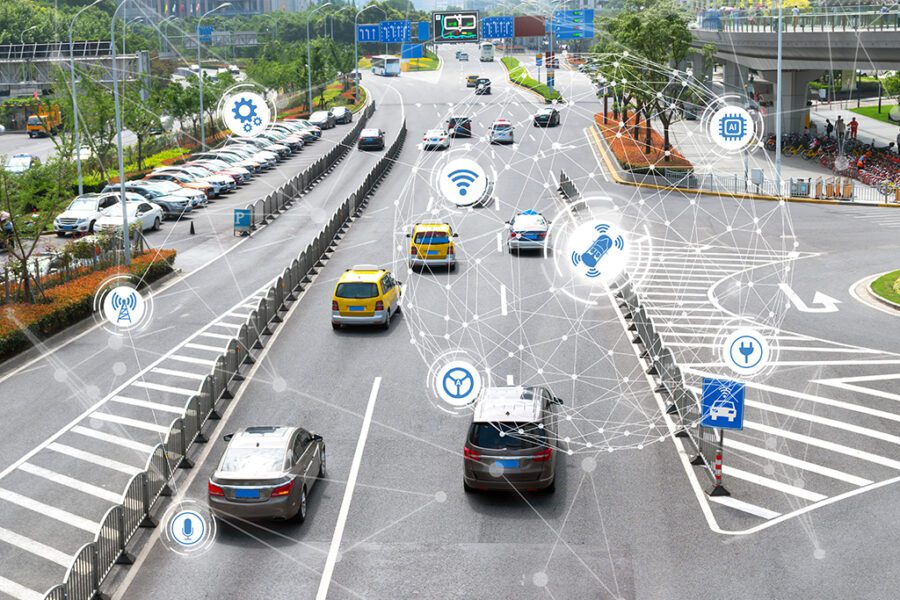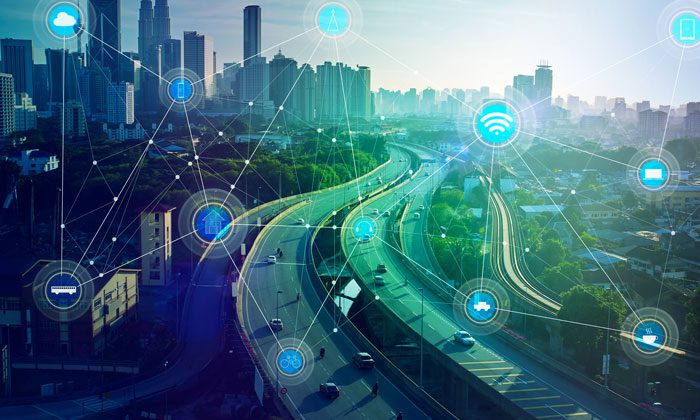
IoT stands for ‘Internet of things’ and can be explained as the network of interconnected devices that share data over the communication networks resembling the spider’s web. Everyday objects like kitchen appliances, cars, fitness devices, and smartwatches are connected to the internet by embedded devices that provide smooth communication between people, things, the environment, and processes.
IoT is changing the world, one such sector which is greatly being reshaped by its use is transportation. Transportation has evolved considerably in recent years, IoT has changed the way goods are moved around in cities and people travel but there are still unsolved issues like traffic accidents, parking problems, congestion, and vehicle emissions.
Problems Faced by The Transport Industry And How IoT Is Solving It
1. Increased fuel consumption
Due to a lack of route management, the transports consume more energy. With real-time data and fleet route management, there is seen a decrease in carbon emissions.
Since manual monitoring is expensive and inaccessible, the IoT has enabled heat and motion sensors to utilize the energy resources more smartly, which is economical for the administrators.
2. Tracking of public transport became a serious issue
Real-time tracking has allowed us to track the real-time location of public transport which can help to analyze when will the vehicle arrive at a specific stop. With this real-time tracking, traveling through the optimal route is more convenient as it alerts the driver about traffic jams, and he finds the alternate route which will save time & energy. These types of services can attract the citizens to use public transport which will automatically lead to less traffic and carbon emissions as there will be fewer private vehicles on road.
3. No advance alerts and availability of parking slots
IoT in transportation can allow smart parking, which will provide real-time data about the car in parking areas. The multi-level parking system has reduced operating and maintenance costs. IoT sensors help by giving alerts about vacant spaces in parking, providing safety and comfort.
4. The established model of transportation lacks the operational efficiency of the trucks
IoT in transportation has allowed trucking business owners to upgrade the operational efficiency of trucks by real-time monitoring and tracking of the fleets. During the case of engine oil leakage, an alert is sent prior to the time indicating the threshold it has reached.

5. Shortage of truck drivers
Because of the demanding nature of trucks in society, there is a shortage of truck drivers. The automated vehicles have solved this issue and reduced the workload.
6. Fleet Management
By integrating IoT in transportation fleet owners have been easily able to operate fleets, and real-time track their vehicles. Also, it offers information related to weather forecasts and the location of vehicles which can help to maximize the use of vehicles which is on duty. which vehicles to be dispatched when.
This system is able to avoid overburdening of vehicles as well as drivers. Fleet managers use geofencing technology to make transportation more advance as it creates virtual boundaries around specific geographic locations such as warehouses, distribution centers, and delivery destinations. Routine expenses like gas and repairs and fuel consumption can also be tracked using IoT.
7. Toll and Ticketing system
IoT is also being used at toll booths which makes the process of toll deduction smooth and eliminates the long cue of vehicles. RFID is used in the smart toll system which by using radio waves helps in automatic toll withdrawal.
Advantages of IoT in transportation
- Increased driver safety
- A sustainable environment
- Better performance of vehicles
- Interconnected data for decision making
- Reduced vehicle maintenance costs
- Enhanced traveling experience
- Improves services of public transport
Conclusion
IoT applications are enhancing the transportation industry. The use of IoT should start at a large scale to make the city smart. Some companies are working very actively with such technologies to make businesses and companies aware of this asset. One such company which I have come across is Aeologic Technologies which provide solutions like RFID, real-time alert, etc.

